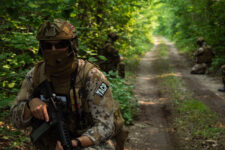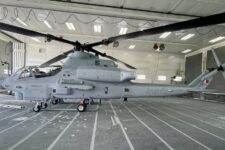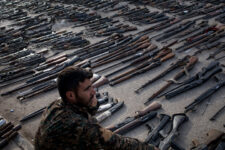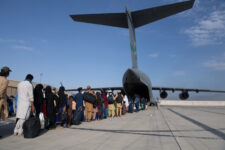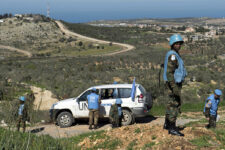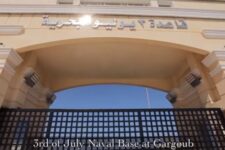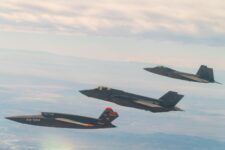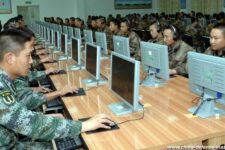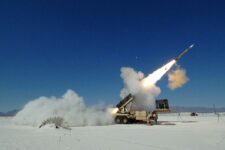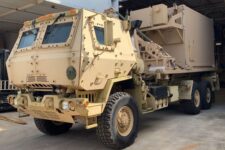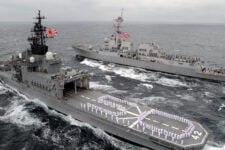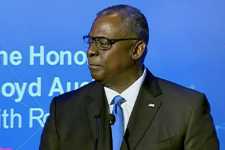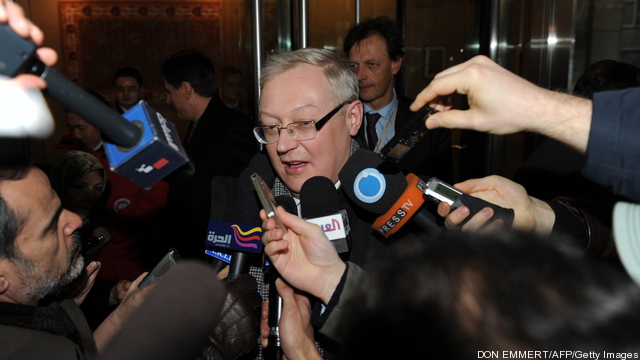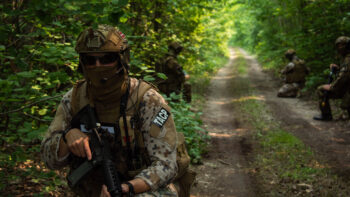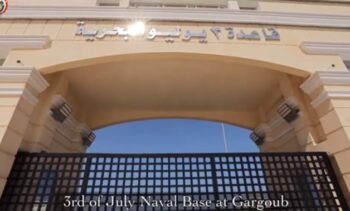Talks this week in Vienna to win guarantees that Iran won’t seek nuclear weapons were workmanlike and “drilled down into details,” diplomats said. But the crisis in Ukraine threatened to change the strategic landscape that has made the negotiations possible.
The Russian envoy to the seven-party talks in Vienna said Wednesday that Russia might take “retaliatory measures” to scuttle the diplomacy. Moscow didn’t want to do this, but it would defend its takeover of the Ukrainian peninsula Crimea. “The historic importance of what happened in the last weeks and days regarding the restoration of historical justice and reunification of Crimea with Russia is incomparable to what we are dealing with in the Iranian issue,” Russian Deputy Foreign Minister Sergei Ryabkov told the Russian Interfax news agency.
Russia’s so-far united front with its negotiating partners the United States, China, Britain, Germany and France has been crucial in imposing sanctions on Iran to get it to the negotiating table. Now with Russia facing off against the United States over Crimea, there are fears the solidarity on Iran could break and encourage the Islamic Republic to become intransigeant. While Iran getting a nuclear weapon is an existential issue for key US ally Israel, it appears that the Crimea, rather than a nuclear Iran, is the reigning existential issue for Russia.
The heights of joy or despair were never going to be tested in Vienna this time around. The talks are at a nitty-gritty technical phase.
A senior US official told reporters after the meetings in the Austrian capital that the two sides got “down to business and into the details.” The talks on reaching a comprehensive agreement with Iran over its nuclear program had begun in Vienna in February, after an interim agreement reached last year that Iran would not expand its nuclear work and in return would get relief from sanctions which have slashed its oil sales and crippled its economy. The two sides are hoping to reach a comprehensive agreement by July.
The two sides are still just getting started, the US official said. “You can’t just dive into the negotiations without setting the table. I think we’ve done that,” the official said.
European Union foreign policy chief Catherine Ashton and Iranian Foreign Minister Javad Zarif said in a statement that the two sides had discussed enrichment, the Arak reactor, civil nuclear cooperation and sanctions. A diplomat told Breaking Defense that each of the four plenary sessions in Vienna were dedicated to one of these topics. The big issues were: the Arak heavy-water reactor, which is under construction, and could produce plutonium, a potential bomb material; and how many and what type centrifuges Iran would be able to keep of the thousands it now has installed to enrich uranium into what could be either nuclear power fuel or the explosive core for atom bombs.
Said the US official: “We feel we made progress in identifying where the gaps exist, and are working to bridge those gaps on these and other issues.” The seven-party talks will continue in a third round April 7-9.
CBS correspondent Margaret Brennan quoted in a tweet a US official saying the Russians are not about to pull out of the Iran talks because Russia’s participation “isn’t a favor they’re doing for the West.” Meanwhile, if Iran is dedicated to getting an agreement in order to stop sanctions from destroying its economy, the Russians may no longer have the influence in the Iranian talks that they had before.
Michael Adler, an expert on Iranian nuclear issues at the Woodrow Wilson Center, writes regularly on the issue for Breaking Defense.
No service can fight on its own: JADC2 demands move from self-sufficiency to interdependency
Making all-domain operations a warfighting capability means integrating, fusing, and disseminating a sensor picture appropriate for a particular theater segment, not all of them, says the Mitchell Institute’s David Deptula.
